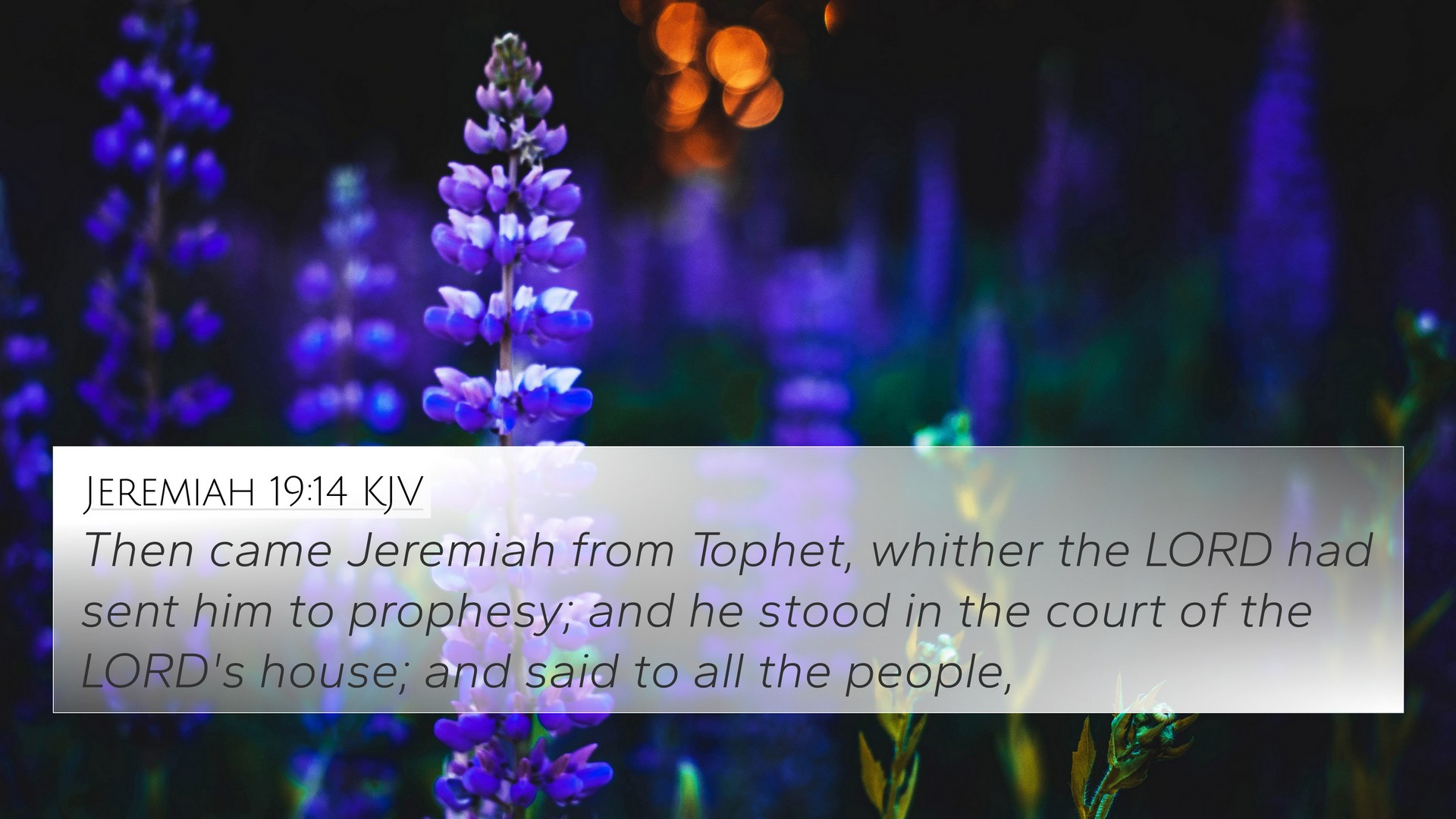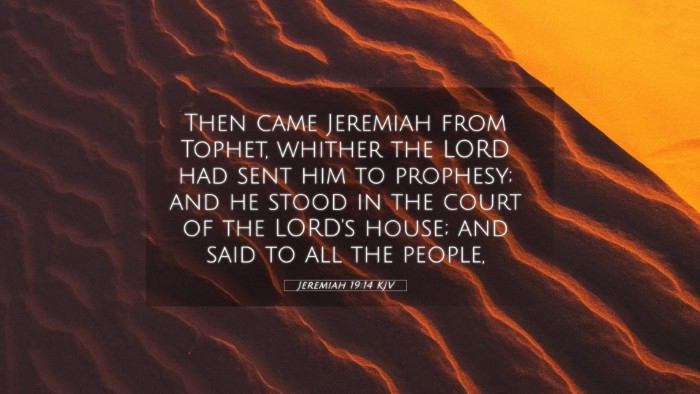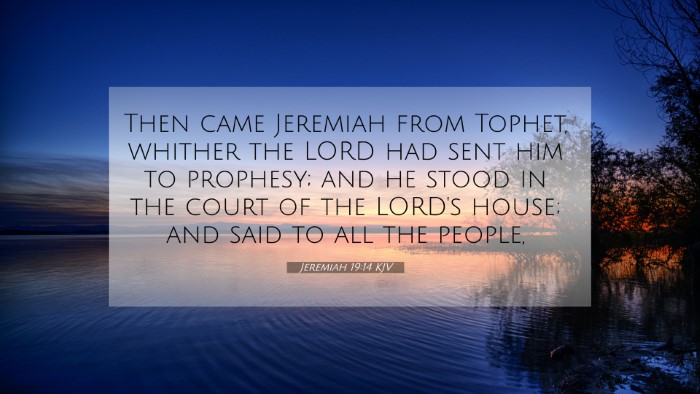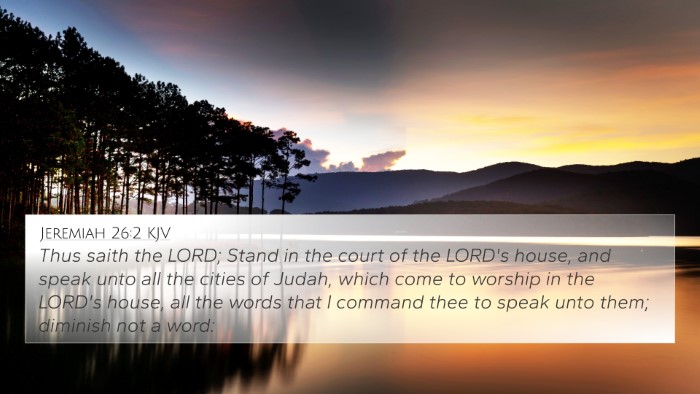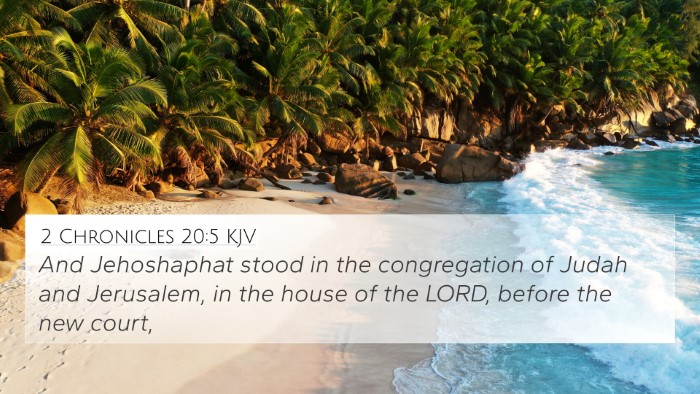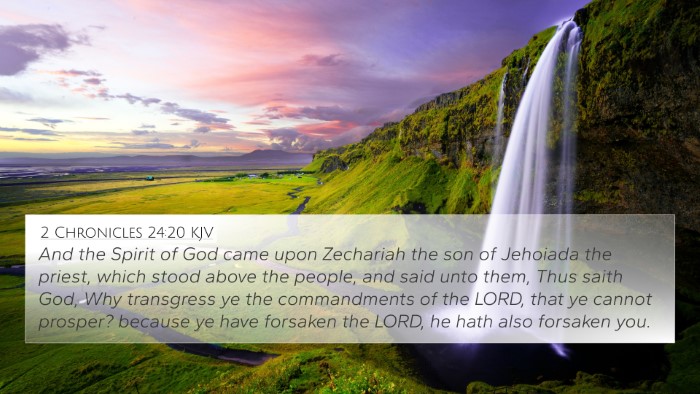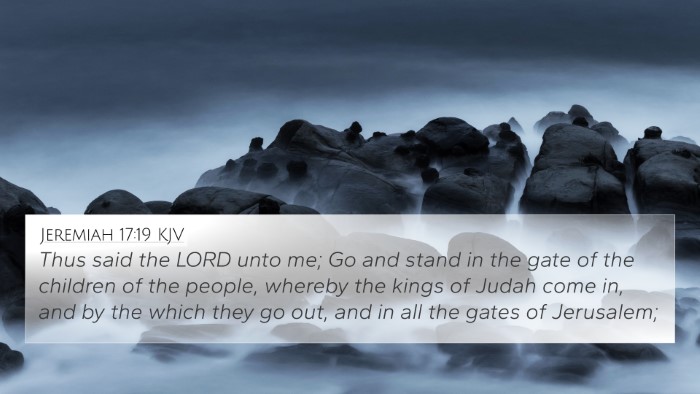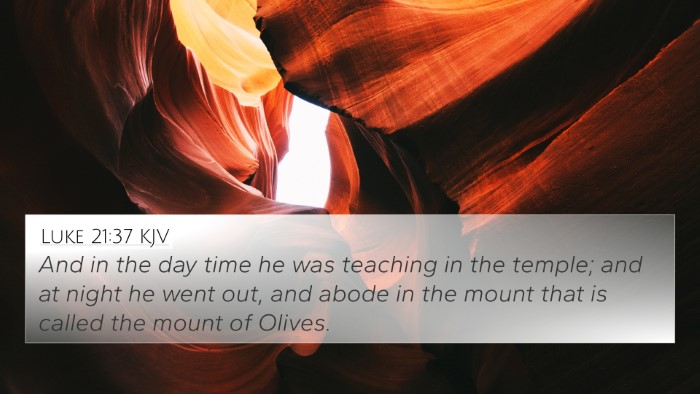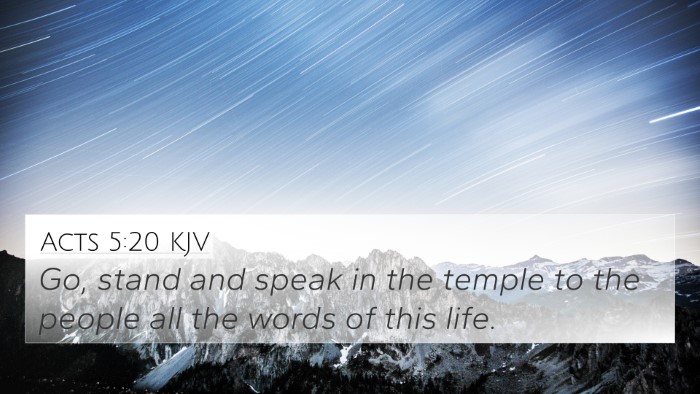Understanding Jeremiah 19:14
Jeremiah 19:14 states, "Then came Jeremiah from Tophet, whither the Lord had sent him to prophesy; and he stood in the court of the Lord's house; and said to all the people." This verse marks a pivotal moment in Jeremiah's prophetic ministry, where he declares the impending judgment due to the people's unfaithfulness.
Verse Meaning and Context
In Jeremiah 19:14, the prophet Jeremiah returns from Tophet, a place associated with idol worship and the abhorrent practice of child sacrifice. This chapter serves as a stark warning about the consequences of turning away from God.
- Context of Judgment: Jeremiah is highlighting the moral decay of the people of Judah and Jerusalem. His message is one of impending doom due to their persistent disobedience.
- The Role of the Prophet: Jeremiah's return to the house of the Lord emphasizes his commitment as a messenger, delivering God's word to the people in the face of their rebellion.
- Geographical Significance: Tophet was a location that symbolized the extreme depravity of idol worship. This geographical reference is crucial for understanding the prophetic message of judgment.
Commentary Insights
Based on insights from historic public domain commentaries, we can glean deeper meanings from this verse:
- Matthew Henry: Henry emphasizes the concept of divine justice, stating that the prophet's words carry a weight of serious warning against the backdrop of Israel's rebellion. The moral implications are enormous, demonstrating how God's patience has limits.
- Albert Barnes: Barnes draws attention to the intense emotion within Jeremiah's message, noting that the prophet's return is not just physical but symbolic of God's unwillingness to abandon His people despite their sin. He serves as a continual reminder of accountability to divine law.
- Adam Clarke: Clarke elaborates on the significance of the temple as a place of worship and prayer, positing that Jeremiah’s pronouncement serves to shake the complacency of the people who trust in their rituals without true repentance.
Cross-References
This verse can connect with several other scriptures, demonstrating thematic parallels and reinforcing the ideas in Jeremiah’s message:
- Isaiah 1:4-6 - This passage discusses Israel's rebellion and the results of forsaking God.
- Ezekiel 8:10 - Ezekiel’s vision of idol worship in Jerusalem parallels Jeremiah’s warning.
- 2 Kings 21:6 - There’s a historical account of child sacrifice under King Manasseh, directly relating to Tophet.
- Psalm 78:58 - This verse reflects God’s anger at Israel’s idolatry, similar to Jeremiah’s lament.
- Luke 13:3 - Jesus warns of judgment unless there is repentance, echoing Jeremiah's call.
- Revelation 2:5 - A reminder to the church to repent and return to their first love, resonant with Jeremiah's urgings.
- Matthew 23:37-39 - Jesus weeps over Jerusalem, paralleling Jeremiah’s sorrow for the people.
Thematic Connections
By analyzing Jeremiah 19:14 alongside these cross-references, we uncover profound thematic connections:
- God's Justice: Across the scriptures, there is a consistent theme of God executing justice against sin, urging repentance.
- Prophetic Warning: The role of prophets as foretellers of judgment is recurrent, highlighting God's desire for His people to return to Him.
- Idolatry's Consequences: The dire consequences of idolatry are a central theme, appearing repeatedly in both the Old and New Testament.
Study Techniques for Cross-Referencing
For those looking to study scriptures deeply, here are effective tools and methods for cross-referencing:
- Bible Concordance: Utilize a concordance for finding verses connected by themes or specific words.
- Bible Cross-Reference Guide: Comprehensive guides help identify relational verses without extensive searching.
- Cross-Referencing Methods: Engage in thematic studies that group scriptures by topics to draw connections.
- Study Groups: Join Bible study groups focused on cross-referencing to expand understanding through discussion.
Conclusion
In closing, Jeremiah 19:14 serves as a powerful reminder of God's patience and the critical nature of repentance. By using scripture cross-referencing and understanding these connections, believers can deepen their grasp of biblical teachings and themes. Moreover, engaging with commentaries encourages further insight into the richness of God's Word.
